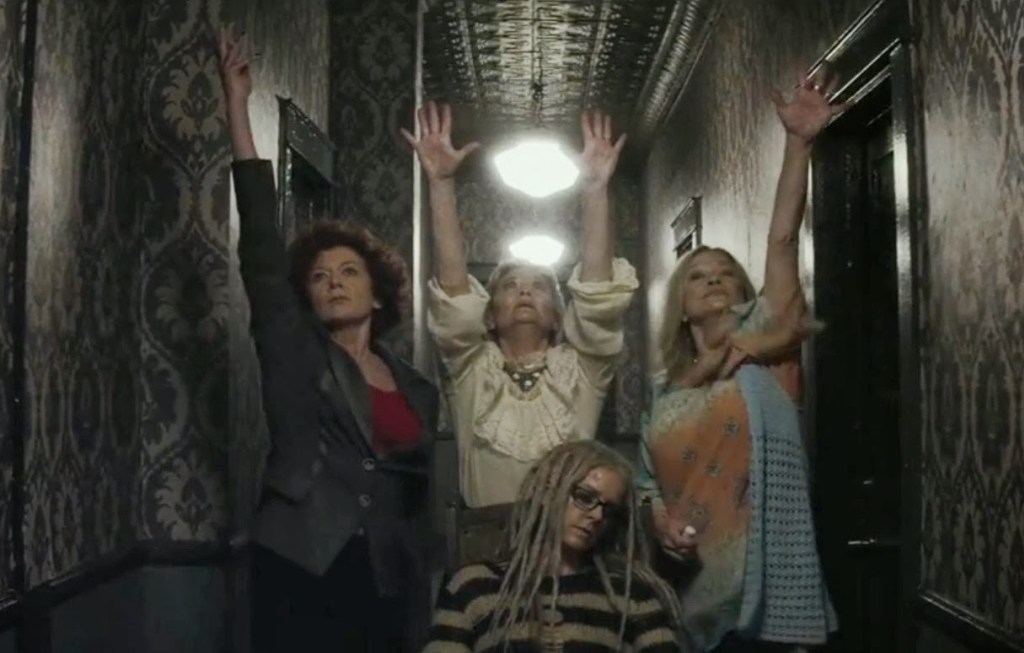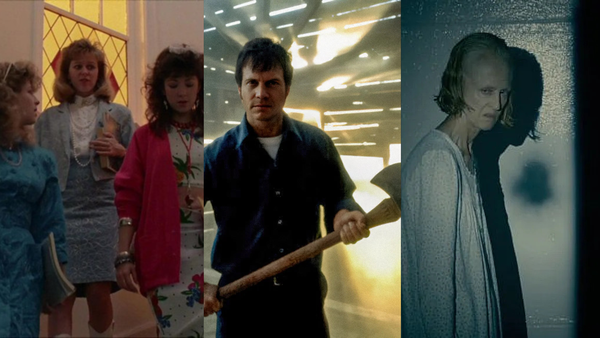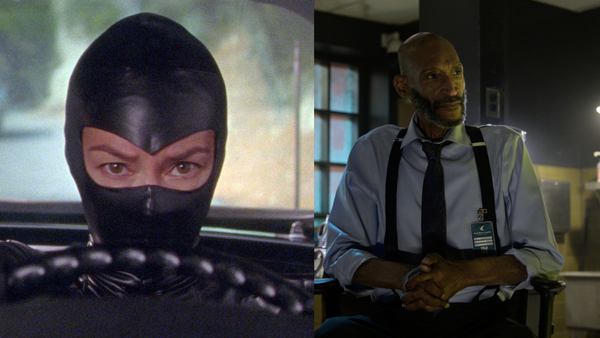Indie Horror Hall of Fame: The Lords of Salem
Dear Heidi, bleed us a king.
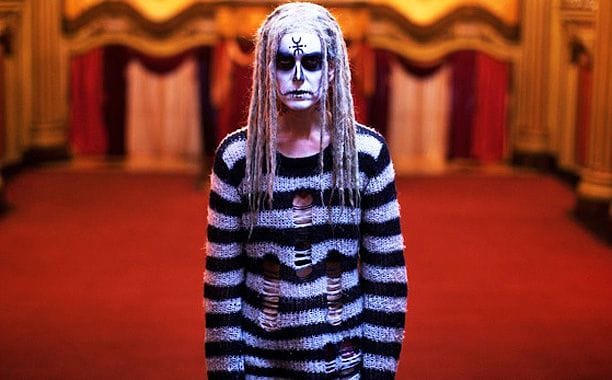
I know that there are a lot of people out there who love to bag Rob Zombie and his films, some of them even making that their entire personality, but I am a big fan of his work as a whole. In fact, for as much as I love his Firefly Family films, Zombie’s The Lords of Salem is on my list of top 10 horror films to be released during the 2010s, and over time, it has also become my favorite work from Zombie as well.
For me, The Lords of Salem is unequivocally Rob Zombie’s greatest achievement as a filmmaker to date. Don’t get me wrong, I have a deep-seated love for many of his other films, but there is something about Lords that just hits me deep in my soul every time I revisit it, which admittedly has been a lot over the years.
A haunting portrait of pain, addiction, and the cruel inevitability of fate, Zombie’s ambitious return to original material after his Halloween films was a triumphant one in my eyes, a reminder that, in terms of modern horror filmmakers, there is no one making movies quite like Rob Zombie. And that’s what I have always appreciated about his work.
Beyond the story and the engaging visuals, something else I appreciate about The Lords of Salem is how Zombie treats his entire cast with respect, something you often don’t see when filmmakers work with genre vets like Dee Wallace, Patricia Quinn, Meg Foster, Ken Foree, Judy Geeson, Bruce Davison and others. More often than not, these actors are brought in to ‘sell’ a film, giving them a small part that’s mostly there to appease longtime horror fans and often used as box names to market a movie. Because Zombie is a huge horror fan himself, he makes sure that their talents are fully utilized here, and I am such a big fan of how he offers all of these big talents nuanced and thoughtful material to work with once again.
For the uninitiated, The Lords of Salem begins in the year 1696, where Margaret Morgan (Meg Foster) and her coven of six took to the outskirts of Salem, Massachusetts to pay tribute to their lord Satan, crafting a song with the power to possess the souls of the women of Salem and attempting to birth their dark lord a child to inherit the earth. Obsessed with Margaret and her fellow witches, a Salem local named Jonathan Hawthorne (Andrew Prine) ends up burning the women at the stake, but not before Margaret curses the women (more specifically, their daughters’ daughters) of the town, and dooms Hawthorne’s bloodline to bear the child of Satan in the process.
The story then fast forwards to current day where we’re introduced to Heidi Hawthorne (Sheri Moon Zombie), a radio DJ who hosts “The Big H Team” show alongside Herman Jackson (Ken Foree) and Herman “Whitey” Salvador (Jeff Daniel Phillips). One night, a mysterious record appears at the station addressed to Heidi from a group only known as “The Lords,” and after playing it, she begins to feel physically affected by the record’s sonic messaging, losing her sense of self and flashing back to the darker days in Salem’s storied history.
From there, things get even worse for Heidi, as she begins to slip away from this realm and begins to accept her horrific fate at the hands of the Lords of Salem.
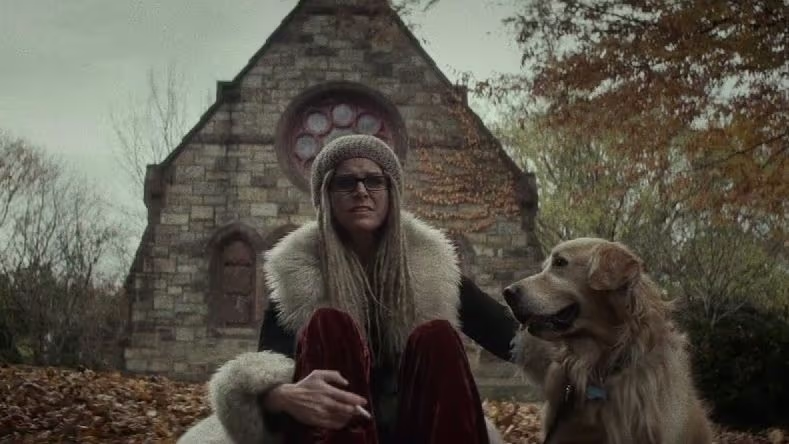
That’s a pretty simplistic rundown of the essence of The Lords of Salem, but there’s more I want to dig into as I go along, so I thought it best to keep it simple for now. That being said, the layers to Zombie’s storytelling in The Lords of Salem are easily my favorite aspect of the film, as there is so much going on below the surface throughout the entire film, and he takes his time pulling away the layers before thrusting us into madness with his gonzo finale.
Plus, for a director who maybe didn’t always take the subtlest routes early on in his directorial career, the way Zombie pushes himself in The Lords of Salem with his fever dream descent into a hallucinatory hellscape is nothing short of masterful, where every detail matters to this narrative and plays its part in the film’s mythology and the effects of that mythology on its characters.
On a visual level, when you examine Heidi’s apartment, her surroundings are mostly black and white, with flourishes of red here and there. In fact, the most colorful aspect of Heidi’s life is her wardrobe, and I love that with her hair and tattoo-covered skin, it’s like Heidi becomes this “busy” fixture against the otherwise muted and often symmetrical palette of her life.
Zombie cleverly leans into the color red at key moments in The Lords of Salem, especially whenever Heidi enters apartment 5, as the startling crimson neon hues filling the room symbolize the primal nature of the evil forces that await her. The first time she and Whitey listen to the album from “The Lords,” Heidi’s apartment is flooded with red light, signaling that this song is beginning to seep its way into her subconscious. And based on the Chakra beliefs, red represents the root of all our personal energies, thereby allowing us to connect with outside energies/forces more freely. There are also many schools of psychological study that believe it’s a color where we are innately drawn to, making it easy to understand why Heidi would be so easily pulled into the confines of that location, with the neon red acting as her beacon.
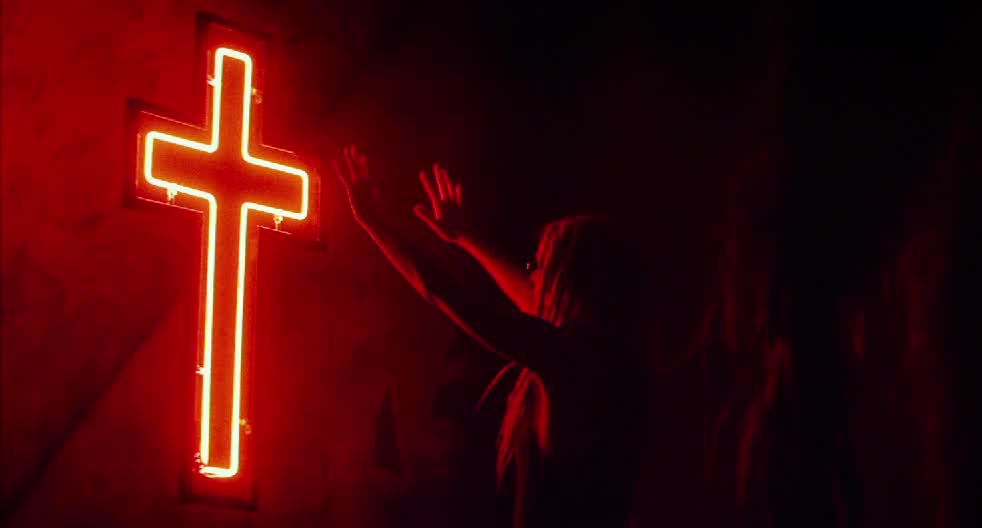
What’s also fascinating is Zombie’s use of the number 5 in The Lords of Salem. There’s the aforementioned apartment that ends up becoming this playing field for Heidi’s soul, and it’s five full days from the first time Heidi listens to that album from “The Lords” to when she becomes fodder for Satan and his followers. Also, maybe this is just my own fascination with numerology, but there are 5 letters to Heidi’s name, and there are certain intriguing aspects to this number that seem to parallel the struggles of Sherri’s character in Lords. In some circles of belief, the number 5 represents the regenerative process and potential for directing that energy towards a defined goal of new creation (like, I don’t know, maybe the spawn of Satan?).
The number 5 is also associated with the concepts of change and fluidity, and the planetary energy of the number 5 is related to Mercury, the messenger to the Gods and the Lord of Communication, so it’s interesting to me that not only does Heidi work in the field of communications, but we see how, the further she slips away from everyone she knows and loves, the more her ability to communicate dwindles.
In fact, if you look at the symbol that represents Margaret Morgan’s coven, it resembles the astrological sign for Mercury, which may or may not be a coincidence (or maybe I just have too much time on my hands, which is always a possibility).
Plus, there are some that believe that 5 is considered the symbol of the universe, and the will’s divine and incarnated consciousness, where you take the four states of matter plus the spirit to get the magic number of five. And of course, the more direct lines you can draw here are to the five points of the pentagram, the wounds of Christ, and in the studies of Tarot, five also represents struggle and conflict, which are central themes featured throughout the narrative of The Lords of Salem.
In Wicca, odd numbers represent feminine energy, so it is interesting that there are three women manipulating Heidi through her atmospheric nightmare in The Lords of Salem. There’s Lacy (Judy Geeson), who manages the apartment building where Sherri’s character lives, and her sisters Sonny, the self-help guru played by Dee Wallace, and the straight-forward palm reader Megan (Patricia Quinn) who is the first to get under Heidi’s skin by telling her she must make peace with her subconscious desires, embracing the darkness contained within her soul, which is ultimately the only reason she even exists in the first place (of course, referencing the curse that Margaret has placed upon the Hawthorne bloodline).
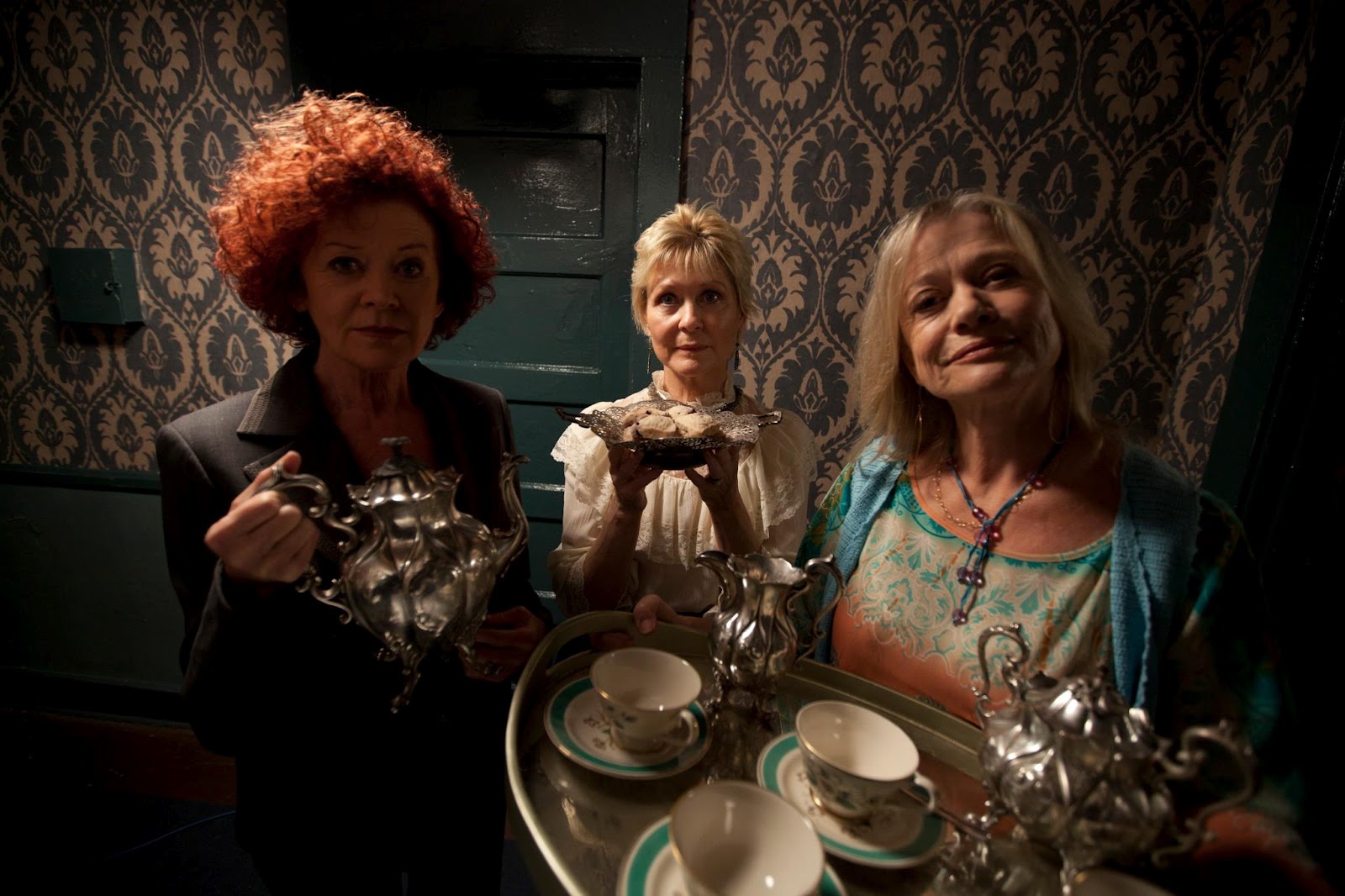
Because Heidi is someone who was born with “darkness in her soul,” it makes it easy to empathize with her past struggles with addiction (although it’s worth noting that everyone’s struggle with addiction should be treated with empathy). But as Heidi continues to lose her grip on reality, she gives in to those darker impulses, which makes her ripe for the picking once Lacy and her sisters show up at Heidi’s door, offering tea and cookies (as well as an ill-fated ride on a chair into apartment 5).
They know any pretenses Heidi might have about the life that she leads have been almost completely stripped away, and she’s now a vulnerable host for the satanic spawn they seek to bring into the world. That’s when The Lords of Salem transforms from being this haunting exploration of fate and the burdens we carry for the sins of the past into a tragic tale of one woman who was looking to find her place in this world after overcoming huge struggles, and she is now once again being manipulated by outside forces.
It’s incredibly heartbreaking that, because of fate, Heidi’s always going to be destined to walk a path of destruction regardless of the circumstances. While there’s so much to appreciate about the film on a surface level, what’s truly driving the story of The Lords of Salem is the internal horror at work in our lives, which very much makes it a standout effort in comparison to everything else we’ve seen from Zombie before.
The thing about Heidi’s journey throughout Lords is that it’s very subtle, save for the last 10 minutes of the film. It feels like Zombie isn’t interested in making these moments stand out here, because so frequently these things that comprise the human experience don’t “announce” themselves — they are just a part of who we are and our everyday lives. Heidi goes to her addiction meeting, but it’s not about creating this huge dramatic moment for her character with any kind of grand exposition; it’s just part of her routine. She plays with her dog, she’s trying to learn French, she even spends time with Whitey outside work. At her core, Heidi is just a woman working her way through her personal demons, one day at a time, but she has no idea that her fate has already been sealed for her for more than 300 years now.
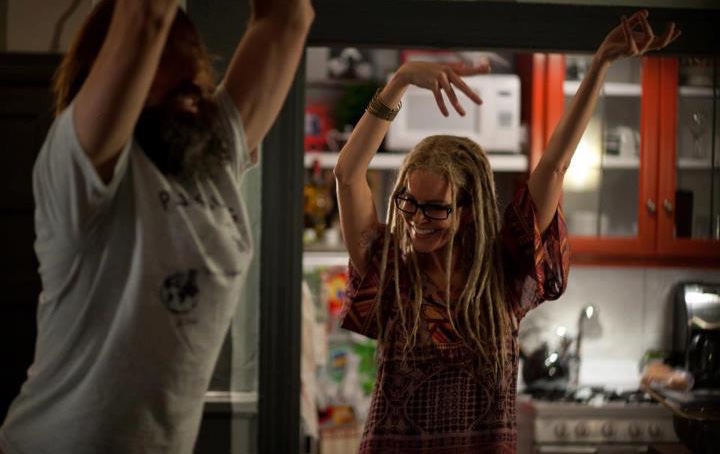
And speaking of Whitey and Heidi, I would be remiss if I didn’t take this opportunity to discuss their relationship that becomes the beating heart of The Lords of Salem. I’m a fan of both Ms. Zombie and Phillips, but I do think their performances in this film are among some of the best work in their respective careers. I know some folks aren’t into the detachedness of Heidi, and I get that, but I always saw the way Sherri plays her character as perfectly reflective of this unseen weight that Heidi has had to carry throughout her life, to no fault of her own.
Heidi’s connection to Whitey represents her chance at life full of love and happiness, where the only real times we see Sherri’s character laughing or smiling in The Lords of Salem is when their characters are together, with the scene of them preparing dinner together while drunkenly dancing around making for a lovely respite amongst the heavy thematic undertones at play in Lords.
Even though we don’t ever see any real moments of physical intimacy between Heidi and Whitey either, it’s the shared chemistry between the actors that gets you so invested in their bond in The Lords of Salem. They know each other so well that Heidi can recognize Whitey’s noises, and when she dreams about escaping the oppressive nature of her surroundings, Heidi’s desperate subconscious transports her into the safe confines of Whitey’s presence.
There’s an inherent sadness to her story, but the scene in The Lords of Salem that always hits me the hardest is when Phillips’ character calls Heidi, once she’s already fully under the manipulation of Lacey and the other witchy women. He so desperately wants to pull her back into reality, but she dismissively shoots him down. As she hangs up, Lacey asks Heidi, “You love him, don’t you?” Unable to even vocalize her feelings, the slight trembling in Sherri’s lips tells us the whole story there.
And despite not being able to get through to Heidi on the phone, Whitey’s not even deterred by the sisters waiting on the stairs of her apartment building when he arrives to take his co-worker to the Lords concert taking place that night. He begrudgingly waits outside at her insistence, but even at this point, where Heidi has let go of any shred of hope for herself, Whitey still hasn’t given up on her, and that’s so goddamn heartbreaking, especially when she closes the door on him and Foree’s character Herman, before entering the theater to embrace the fate that awaits her at the gathering of The Lords.
Which brings us to the finale of The Lords of Salem.
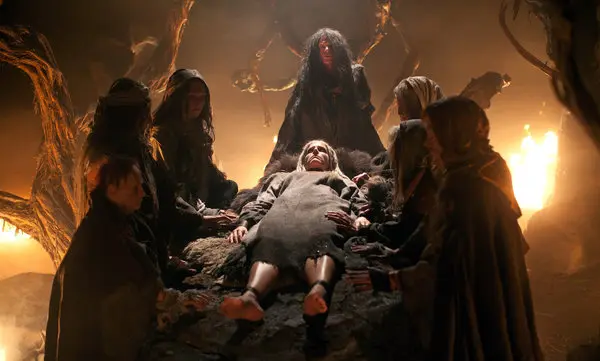
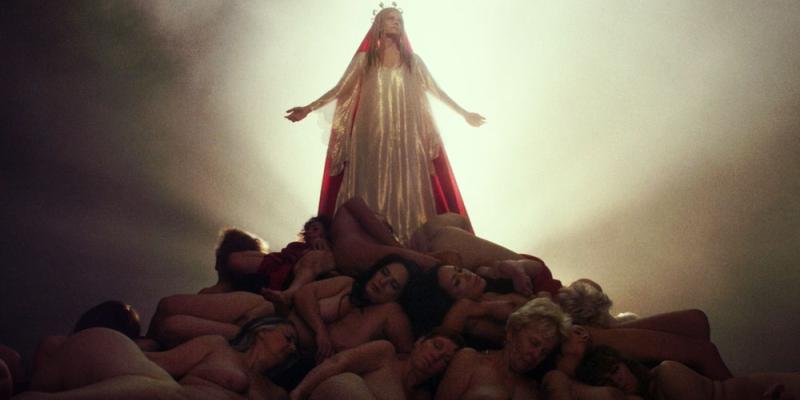
While the rest of the film feels like a slow-simmering pot set to boil over at any moment, the arrival of Margaret Morgan and her coven in the theater marks a departure of Zombie’s slow and steady storytelling approach here, amping up the climax with an onslaught of nightmarishly abstract imagery, culminating in Heidi’s demonic ascension, as The Velvet Underground’s “All Tomorrow’s Parties” accompanies the moment.
That song and this sequence signify that the Heidi that we have come to know in The Lords of Salem is officially gone, and the titular band of witches has won. It’s a haunting and unforgettable moment dripping in melancholy, because regardless of what anyone may have tried to do to intervene, this was Heidi’s fate. And no one can stop fate.
It’s the final shots in The Lords of Salem of a carefree Heidi, playing with her adorable dog Troy in the park, that are the final gut-punch for me as a viewer, where you can’t help but mourn for this woman who had her existence taken away from her because of the decisions of her ancestors more than three centuries prior. It’s undoubtedly a downer way to end a film, but I think that’s why it’s so damn effective, because Zombie isn’t looking to give us a happy ending just to satiate our own fears about fate and what the future may hold for us.
The Lords of Salem serves as an ominous reminder that no matter how hard we may fight it or try to control it, there’s an inevitability to human existence that will come for us all in the end. No matter how hard we may try and fight our destiny in the end.
